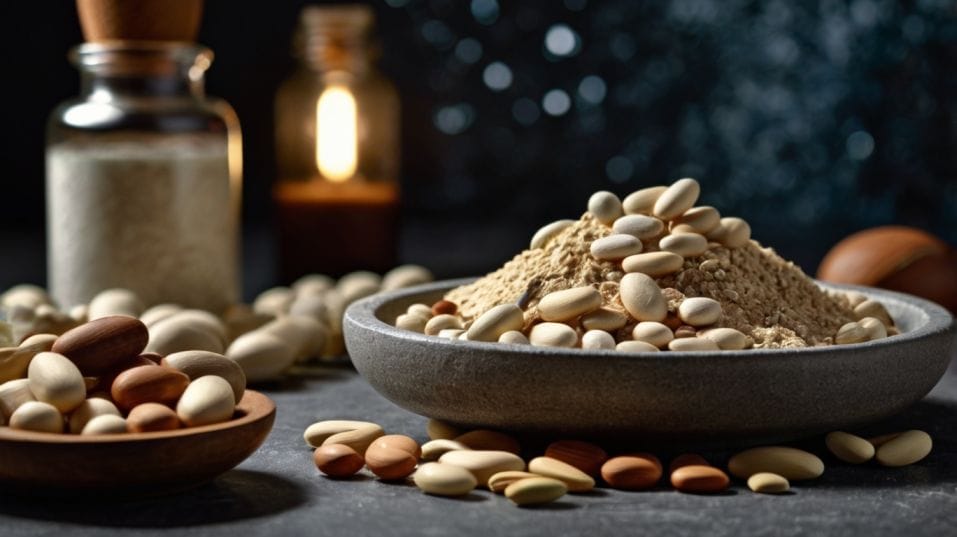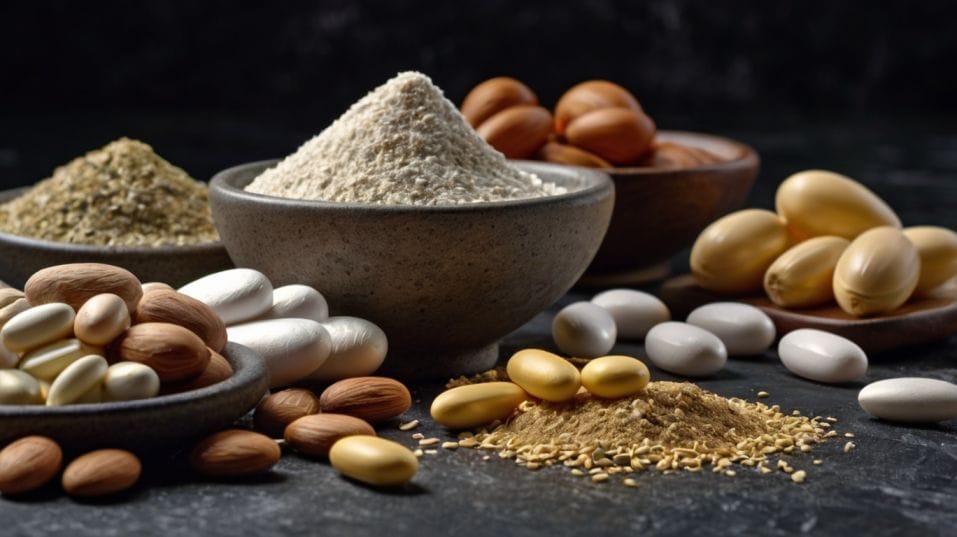Magnesium Glycinate vs. Citrate: Which Is Better for Sleep?
Magnesium glycinate vs citrate—discover which form actually improves sleep so you can fall asleep faster and wake up fully recharged.

Still tossing and turning at night—even after trying all the usual fixes? There's one key your sleep may be missing: magnesium. But not just any kind.
Some types can actually work against deep rest. Others? They quietly unlock the recovery your body craves.
If you're serious about waking up refreshed, it's time to get clear on the difference between two top contenders—glycinate and citrate—so you can choose the form that actually helps you sleep.
Magnesium and Sleep: The Core Connection
Before diving into forms, you need to know what magnesium actually does. This mineral helps regulate dozens of systems in your body, but when it comes to sleep, three stand out:
- It activates your parasympathetic nervous system, the one responsible for calm, rest, and recovery.
- It boosts GABA, a neurotransmitter that slows brain activity and tells your body it’s time to wind down.
- It supports melatonin production, the hormone that sets your internal clock and signals sleep onset.
If you're low on magnesium—and most people are, thanks to modern diets and stress levels—those systems don't fire properly. You may fall asleep slower, wake up more often, or feel like you didn’t actually rest.
Now here’s the catch: the type of magnesium you take determines how much of it actually gets absorbed—and what it does once it’s in your system.

Magnesium Citrate: Popular, But Not Built for Sleep
Magnesium citrate is one of the most widely used forms for a reason. It’s inexpensive, easy to find, and has a solid absorption rate. But its strengths are better suited to digestion than sleep.
Citrate is often used as a mild laxative. It pulls water into the intestines, which can help get things moving if you’re backed up. That’s great for gut health, and if digestive discomfort is keeping you up, citrate might help indirectly.
Not Ideal for Nighttime
But here’s the downside: citrate has a mildly stimulating effect. It’s not energizing like caffeine, but it doesn't support that deep “off switch” feeling you want at night.
If anything, it can feel a little buzzy. Not ideal when your goal is deep, unbroken rest.
It’s also more likely to cause disruptions if taken too close to bedtime. You don’t want a supplement that sends you to the bathroom at 3 a.m.
Use magnesium citrate if your main concern is digestion. But if you’re after better sleep, there’s a smarter option.
Magnesium Glycinate: Calm, Consistent, Sleep-Ready
Magnesium glycinate is what you want if your sleep needs a reset. This form combines magnesium with glycine—a calming amino acid that doubles down on nervous system relaxation.
Glycine by itself is known to promote deeper sleep. It helps regulate body temperature and lowers cortisol, the stress hormone that often keeps your brain wired.
Pair that with magnesium’s ability to boost GABA activity, and you’ve got a two-pronged approach to falling asleep faster and staying asleep longer.
Built for Deep Recovery
Unlike citrate, glycinate isn’t going to send you to the bathroom or give you a wired undertone. It’s gentle, steady, and built for nightly use.
It absorbs well, doesn’t upset your stomach, and works behind the scenes to support the deeper stages of sleep—where recovery, memory consolidation, and hormonal balance happen.
What does this feel like in real life? You wake up feeling clear. Less groggy. Your muscles feel recharged. Your brain isn’t slogging through mud until 11 a.m. You’re alert and calm—like your baseline got a serious upgrade.
What Experts Recommend
Sleep researchers and functional medicine doctors often recommend magnesium glycinate as a go-to sleep support tool. That’s not hype—it’s based on clinical outcomes.
Studies show that magnesium supplementation, particularly with forms like glycinate or bisglycinate, improves sleep quality in both healthy adults and those struggling with insomnia.
It helps people fall asleep faster, stay asleep longer, and experience more slow-wave (deep) sleep.
While melatonin tells your body when to sleep, magnesium helps your body actually do it—by lowering stress levels, quieting the brain, and regulating circadian function at a deeper level.
How to Add Magnesium Glycinate to Your Routine
Adding magnesium glycinate is simple—and the payoff is huge.
Timing, Dosage, and Delivery
- When to take it: About 60–90 minutes before bed. This gives your system time to absorb it and start calming your brain and muscles.
- How much: Most people see results with 200–400 mg daily. Check the label—some products list magnesium bisglycinate (same thing, just a different naming convention).
- How to take it: Capsules are the most common, but there are also powders and drink mixes if you prefer a calming bedtime ritual. Combine it with other low-stim activities like reading or stretching to reinforce your wind-down cues.
Once it’s in your system consistently, your sleep begins to shift. It becomes easier to fall asleep naturally. You stop waking up at odd hours. And best of all, mornings stop feeling like punishment.
What About Other Forms?
If you're scanning supplement labels, you'll see other types: oxide, chloride, threonate, malate, sulfate. Each has its niche.
- Oxide is cheap, poorly absorbed, and best avoided.
- Threonate is promising for brain health, but less researched for sleep.
- Malate is energizing—great for daytime, not night.
Why Glycinate Still Wins
But for sleep? Glycinate is still the most consistent, low-maintenance, high-reward choice.
Final Thoughts
If better sleep is your goal, magnesium glycinate is your move. It helps your body relax without grogginess.
It supports deeper, more restorative rest without disrupting your digestion. And it works with your brain’s natural rhythms, not against them.
Don’t overthink it. Pick up a quality magnesium glycinate supplement, take it tonight, and let it start reshaping your sleep from the inside out.
You’ve already tried guesswork. Now it’s time for something that actually delivers. Start now—your energy, focus, and recovery all begin with better sleep.




